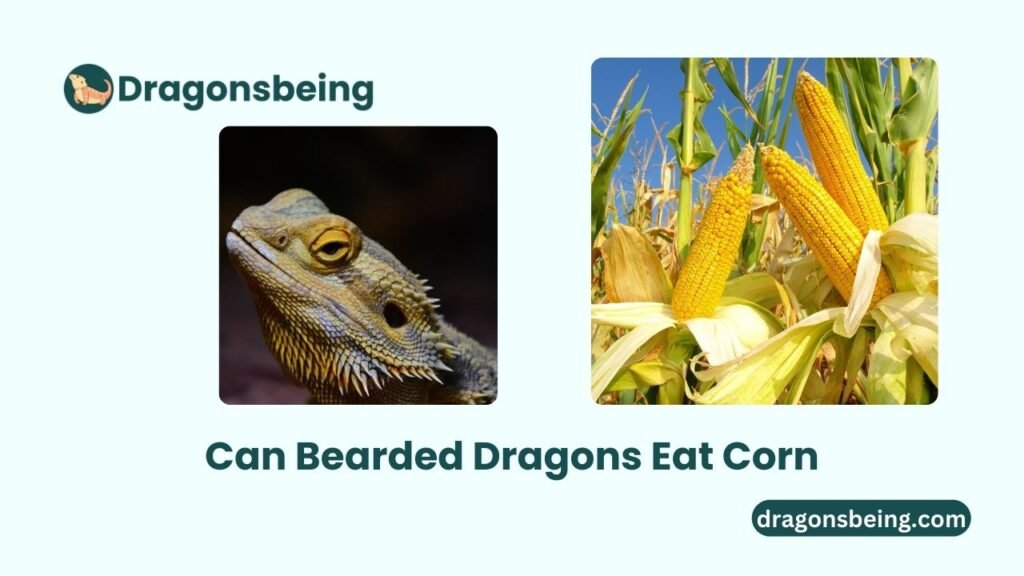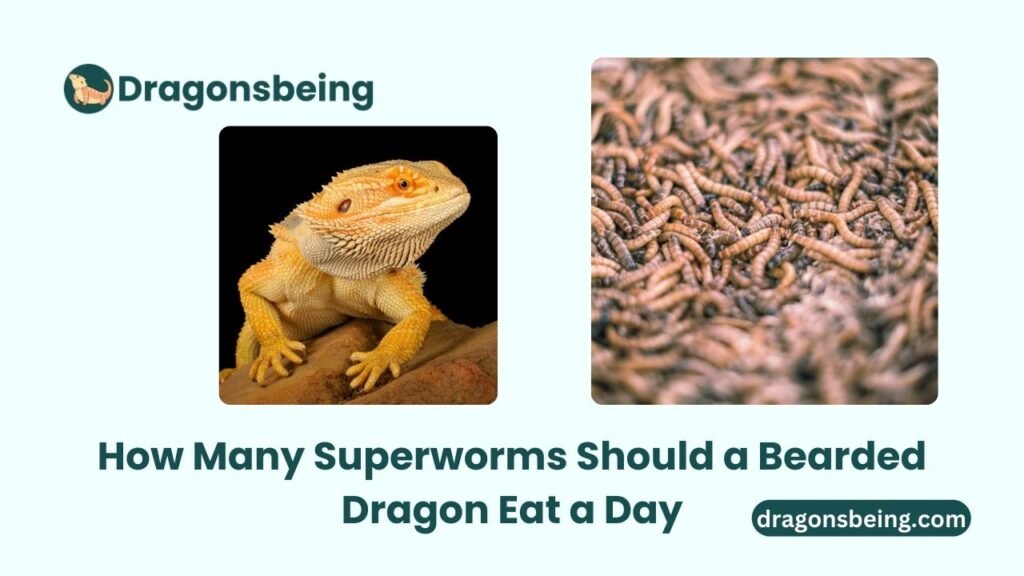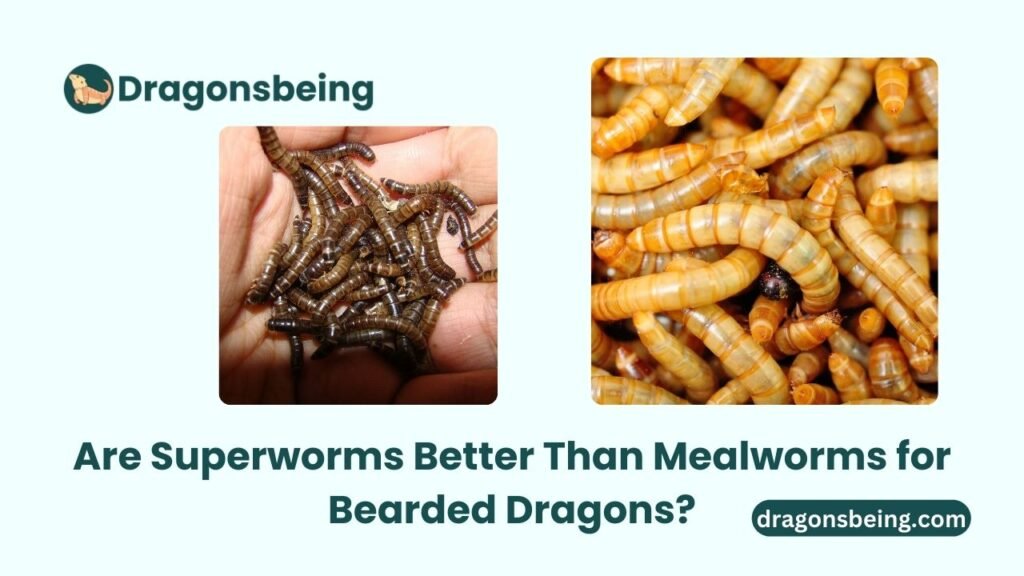Bearded dragons can eat corn, but it should only be offered in moderation. Corn lacks essential nutrients and can be difficult for them to digest.
Bearded dragons are popular pets known for their unique personalities and dietary needs. Understanding what they can safely eat is crucial for their health.
A varied diet typically includes insects, vegetables, and fruits. While many foods are safe and nutritious, not all are suitable for every reptile.
Corn, for instance, is a controversial choice among reptile owners. It offers minimal nutritional value and may cause digestive issues.
Knowing which foods are best ensures your bearded dragon thrives and maintains a balanced diet. Always consult a vet or reliable resources for specific dietary guidance.
Nutritional Profile Of Corn
Corn is a popular food for many animals. It’s important to know its nutritional profile. Bearded dragons may enjoy corn, but understanding its nutrients is key.
Vitamins And Minerals In Corn
Corn contains several essential vitamins and minerals:
- Vitamin A: Supports vision and immune function.
- Vitamin B6: Aids in energy metabolism.
- Folate: Important for cell division.
- Magnesium: Supports muscle and nerve function.
- Phosphorus: Vital for strong bones and teeth.
These nutrients are beneficial but should not be the main diet.
Carbohydrates And Fiber Content
Corn is high in carbohydrates and fiber:
| Nutrient | Amount per 100g |
|---|---|
| Carbohydrates | 21g |
| Dietary Fiber | 2.4g |
Carbohydrates provide energy, while fiber aids digestion. Too much corn can lead to digestive issues.
Benefits Of Corn In A Bearded Dragon’s Diet
Corn can be a tasty treat for bearded dragons. It offers some valuable nutrients. Understanding its benefits helps in making better dietary choices.
Energy Provision
Corn is rich in carbohydrates. These carbohydrates provide essential energy. Bearded dragons need energy for daily activities.
- Active playtime
- Exploration
- Digestion
Including corn in moderation can help maintain their energy levels. Healthy energy helps them stay active and happy.
Digestive Health
Corn contains dietary fiber. Fiber aids in digestion. A good digestive system is crucial for bearded dragons.
- Helps prevent constipation
- Promotes gut health
- Supports nutrient absorption
Feeding small amounts of corn can enhance digestive health. Always monitor their reaction to new foods.
| Nutrient | Benefit |
|---|---|
| Carbohydrates | Provides energy |
| Fiber | Aids digestion |
| Vitamins | Supports overall health |
Potential Risks Of Feeding Corn To Bearded Dragons
Feeding corn to bearded dragons can pose several risks. While corn may seem harmless, it can lead to health issues. Understanding these risks is vital for your pet’s well-being.
Sugar Content Concerns
Corn contains a high amount of sugar. This can cause several problems:
- Weight Gain: Excessive sugar can lead to obesity.
- Diabetes: High sugar levels may increase diabetes risk.
- Energy Fluctuations: Sugar can cause energy spikes and crashes.
Bearded dragons thrive on a low-sugar diet. A diet high in sugar can disrupt their health.
Impact On Digestive System
Corn is difficult for bearded dragons to digest. This can lead to:
- Blockages: Hard kernels can cause digestive blockages.
- Gas: Fermentation can create gas in their intestines.
- Diarrhea: Poor digestion may lead to diarrhea.
Proper digestion is crucial for a healthy bearded dragon. Avoid feeding corn to maintain their digestive health.
How To Safely Introduce Corn To Your Bearded Dragon
Introducing corn to your bearded dragon requires caution. Corn is not a staple food. It should be a rare treat. Follow these guidelines for safe feeding.
Proper Portion Sizes
Bearded dragons have small stomachs. Proper portion sizes are crucial to their health. Here are some guidelines:
| Size of Bearded Dragon | Recommended Corn Portion |
|---|---|
| Baby (up to 6 months) | 1-2 small kernels |
| Juvenile (6 months – 1 year) | 2-4 small kernels |
| Adult (1 year and older) | 4-6 small kernels |
Always cut the kernels into small pieces. This prevents choking. Monitor your dragon during feeding.
Frequency Of Feeding Corn
Corn should not be a regular food item. Offer it as an occasional treat. Here’s a simple schedule:
- For babies: Once a month
- For juveniles: Twice a month
- For adults: Once every two months
This schedule helps maintain a balanced diet. Always prioritize leafy greens and protein sources. Avoid overfeeding corn to prevent digestive issues.
The Role Of Variety In A Bearded Dragon’s Diet
Bearded dragons thrive on a diverse diet. Variety helps ensure they get essential nutrients. It prevents boredom and promotes healthy eating habits. Different foods provide different vitamins and minerals.
Balancing Nutrition With Variety
A balanced diet is crucial for bearded dragons. Each food item has unique nutritional benefits. Here’s how to balance their diet:
- Mix leafy greens with colorful veggies.
- Include protein sources like insects.
- Limit sugary fruits to small amounts.
Rotating food types enhances their diet. This practice prevents nutrient deficiencies. It also keeps your pet interested in meals.
Other Vegetables To Consider
Besides corn, several vegetables are great for bearded dragons:
| Vegetable | Benefits | Serving Size |
|---|---|---|
| Collard Greens | High in calcium | 1-2 leaves |
| Carrots | Rich in beta-carotene | 1/2 carrot |
| Bell Peppers | High in vitamins A and C | 1/2 pepper |
| Squash | Good source of fiber | 1/4 cup |
These vegetables provide vital nutrients. Offer them regularly for a balanced diet.
Preparing Corn For Your Bearded Dragon
Feeding your bearded dragon corn requires proper preparation. Corn can be a tasty treat, but it must be prepared correctly. This ensures your pet receives the best nutrition without any risks. Let’s explore how to prepare corn safely for your bearded dragon.
Cooking Vs. Raw
You can offer corn to your bearded dragon in two main ways: cooked or raw. Each method has its benefits.
| Method | Benefits | Drawbacks |
|---|---|---|
| Cooked |
|
|
| Raw |
|
|
Chopping Corn For Easy Consumption
Chopping corn makes it easier for your bearded dragon to eat. Follow these simple steps to prepare corn:
- Select fresh corn: Choose corn that is bright and firm.
- Remove the kernels: Use a sharp knife to slice off the kernels.
- Chop the kernels: Cut them into small, bite-sized pieces.
- Wash thoroughly: Rinse the corn to remove any dirt or pesticides.
- Serve: Place the chopped corn in your dragon’s dish.
Always monitor your bearded dragon while eating. Ensure they chew their food properly. This prevents choking and promotes better digestion.
Understanding A Bearded Dragon’s Feeding Behavior

Feeding bearded dragons requires understanding their unique behavior. These reptiles have specific needs and preferences. Knowing how they express hunger helps owners provide the right diet.
Recognizing Hunger Signs
Bearded dragons show clear signs when they are hungry. Recognizing these signs is vital for their health. Here are some common behaviors:
- Head Bobbing: A quick up-and-down movement.
- Glass Surfing: Scratching at the enclosure walls.
- Licking Lips: They lick their lips when interested in food.
- Active Movements: Increased activity and exploring their habitat.
These signs can vary among individual dragons. Always observe their behavior closely.
When To Offer Food
Timing is essential for feeding bearded dragons. Here are some guidelines:
| Time of Day | Feeding Recommendations |
|---|---|
| Morning | Offer fresh vegetables and insects. |
| Afternoon | Provide more insects if they are active. |
| Evening | A light snack may be given. |
Be mindful of their digestive cycle. Young dragons require more frequent meals. Adults can eat less often but need a balanced diet.
Always remove uneaten food after a few hours. This helps keep their habitat clean and healthy.
Common Misconceptions About Bearded Dragons And Corn
Many people believe that bearded dragons can eat corn safely. This idea often leads to confusion. Understanding the facts helps keep your pet healthy. Let’s clear up some of these misconceptions.
Myth Busting
Here are some common myths about bearded dragons and corn:
- Myth 1: Corn is a good source of nutrition.
- Myth 2: All reptiles can eat corn.
- Myth 3: Corn is safe in any amount.
Each of these myths can lead to health problems. Corn lacks essential nutrients for bearded dragons. It contains too much sugar and starch. This can cause digestive issues and obesity.
Why Expert Opinions Matter
Expert opinions provide valuable insights into pet care. Veterinarians and reptile specialists often advise against feeding corn. Here’s why:
| Expert Source | Reason Against Feeding Corn |
|---|---|
| Veterinarians | High starch levels can lead to obesity. |
| Reptile Specialists | Offers little nutritional value. |
| Animal Nutritionists | May cause digestive problems. |
Trusting expert advice helps ensure your bearded dragon’s health. Always consult a vet for dietary questions. Proper care leads to happy, healthy pets.
Consulting With A Vet About Your Bearded Dragon’s Diet
A vet can provide valuable advice for your bearded dragon’s diet. Bearded dragons have specific nutritional needs. Corn may not be suitable for them. Consulting a vet ensures your pet stays healthy.
When To Seek Professional Advice
Consider visiting a vet under these circumstances:
- You notice changes in appetite.
- Your bearded dragon shows signs of illness.
- You want to change their diet significantly.
- You are unsure about what foods are safe.
Tailoring The Diet To Your Pet’s Needs
Every bearded dragon is unique. A vet can help tailor a diet plan.
| Life Stage | Recommended Foods | Foods to Avoid |
|---|---|---|
| Hatchling | Crickets, greens, small vegetables | Corn, large insects |
| Juvenile | Crickets, leafy greens, fruits | Corn, high-fat foods |
| Adult | Greens, vegetables, occasional insects | Corn, processed foods |
Focus on a balanced diet. A vet can recommend the right mix of:
- Protein sources
- Vegetables
- Fruits
Monitoring your bearded dragon’s weight helps too. Regular check-ups ensure health and happiness.
Frequently Asked Questions
Can Bearded Dragons Eat Corn Safely?
Bearded dragons can eat corn in small amounts, but it’s not a necessary part of their diet.
Is Corn Healthy For Bearded Dragons?
Corn lacks essential nutrients for bearded dragons and can cause digestive issues if fed excessively.
How Often Can I Give Corn To My Bearded Dragon?
Corn should be an occasional treat, given sparingly to avoid health complications.
What Vegetables Can Bearded Dragons Eat?
Bearded dragons enjoy leafy greens, bell peppers, and squash as healthy vegetable options.
Can Corn Cause Digestive Problems In Bearded Dragons?
Yes, corn can lead to digestive blockages if consumed too frequently or in large quantities.
What Foods Are Toxic To Bearded Dragons?
Avoid feeding bearded dragons avocado, rhubarb, and citrus fruits, as these can be harmful.
Conclusion
Feeding bearded dragons requires careful consideration. While corn may not be toxic, it lacks essential nutrients for their health. Opt for veggies and insects that provide better nutritional value. Always prioritize a balanced diet to ensure your bearded dragon thrives.
Keep researching to make informed choices about their food!

Hi, I’m Dr. Michelle Mayers, a veterinary professional with a deep passion for animal health and well-being. Over the years, I’ve dedicated my life to caring for animals and helping pet owners better understand their furry, feathered, or scaly companions. On my blog, Dragonsbeing, I share insights, tips, and stories that aim to educate, inspire, and connect with fellow animal lovers. Join me at Dragonsbeing as we explore the fascinating world of veterinary care and celebrate the special bond between humans and animals!


